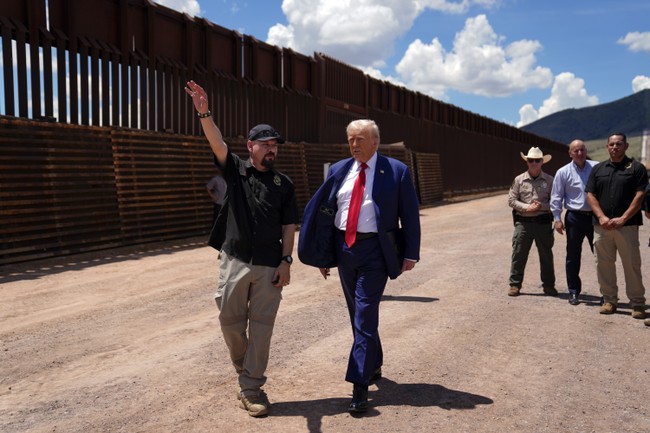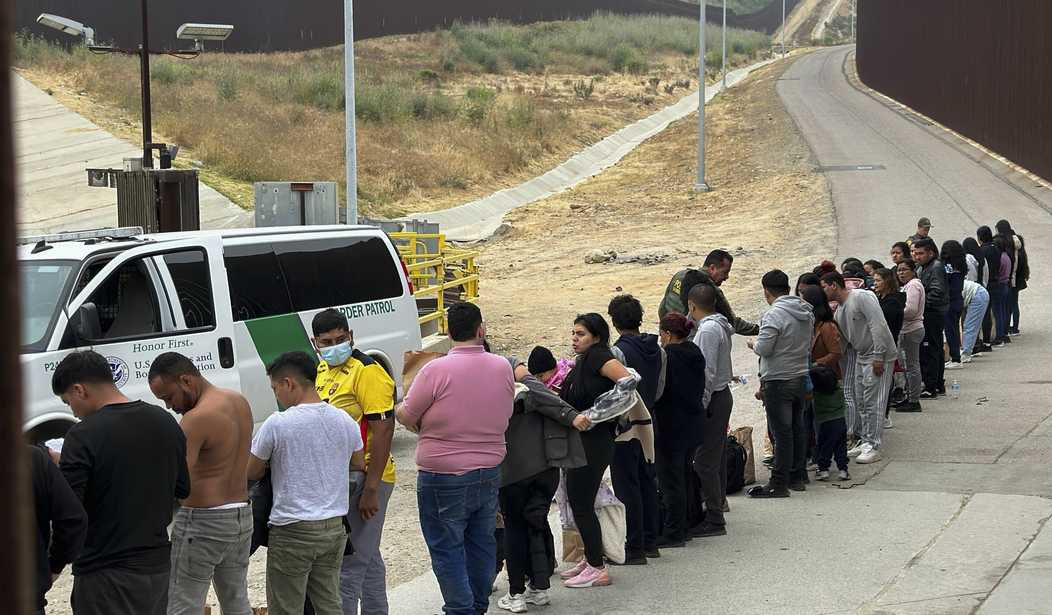There have been a couple of aphorisms the press loves to trot out to the public as a means of describing – or more accurately deflecting away from - their actions and practices. The first is “We are not the enemy of the people.” Another is that they do not need to give equal airtime to issues because if they give Republicans a fair shot at coverage they are platforming what the press deems to be misinformation. Giving both sides of a story will legitimize the “wrong” side, in their elevated thinking.
Now keep these chestnuts in mind as we look at a pair of stories from different outlets concerning the success President Trump has seen at the border. In recent weeks the data has come in showing that illegal border crossings have slowed to a trickle, with some stats from March showing that entries have dropped by at least 95 percent, and possibly higher than that. Then roll in the growing tide of self-deportations, and we end up in a net-positive arena with illegals.
But the press cannot tolerate any news that would be regarded as positive for the president, so they need to recalibrate what is happening at the southern border. One tactic is to simply overlook the progress made, in similar fashion to how they insisted there was not a border crisis for four years; now it is the case that there is no border success. Another is coming to light this weekend, as we saw not one but two reports straining to claim how this successful effort at the border has negative effects.

There has been a long-running joke about the press that if Trump does anything positive, they will find the negative to report on that result. If Trump were to find a cure for cancer, the reporting would be how Trump is putting life-saving doctors out of work. Now they have devolved into their own punchline.
Yesterday, RedState's Rusty Weiss gave us the CNN interview where the outlet conducted with a Mexican cartel member to discuss the adverse effects Trump’s border policy is having on their operations. This was unreal, as reporter Isobel Yeung literally asked for impressions from this criminal on how they have been described by the president. "The cartels have been labeled a foreign terrorist organization. What do you make of that?" Seriously?! This was allowed on their airwaves. This can be paraphrased thusly: “The president called you a bad name – how does that make you feel?”
So Republicans should not be granted equal time, but human trafficking cartels need to have their side heard. Got it. Now enter the Associated Press. In similar fashion, the straight-down-the-middle-unbiased-non-partisan news syndicate traveled to Panama to record the effects of the first 100 days of the Trump administration. That is to say, they wanted to get a look at the negative impacts the new border policy was having on towns in Central America. If this sounds like a daft approach to this issue, just wait.
The AP has taken a sympathetic look into how some Central American towns have been adversely affected by the severe drop in illegal migrant traffic. Small communities that saw remarkable prosperity for their region have seen that flow of wealth grind to a halt. We are supposed to feel for one resident in a remote jungle abode as he watches the vile man who cut off his money supply…appearing on the flatscreen television he watches with his exclusive electrical hookup.
With that burst of wealth, many in towns like Luis Olea’s Villa Caleta, in the Comarca Indigenous lands, abandoned their plantain and rice crops to carry migrants down the winding rivers. Olea installed electricity in his one-room wooden home in the heart of the jungle. Families invested in children’s education. People built homes and more hopeful lives.
Then the money vanished. After Trump took office in January and slashed access to asylum in the U.S., migration through the Darien Gap virtually disappeared. The new economy bottomed out, and residents newly dependent on it scrambled for options.“Before, we lived off of the migration,” 63-year-old Olea said. “But now that’s all gone.”
Once almost impenetrable jungle, the humanitarian crisis in the Darien Gap left behind environmental crisis – polluted rivers, 2500 tons of trash, deforestation and more – stretching on after migration has plummeted.
— Megan Janetsky (@meganjanetsky) May 5, 2025
For @AP with @matiasdelacroix: https://t.co/SOFZqxXI66 pic.twitter.com/yb2w8yMXIA
This is almost unreal, and yet in today’s press climate it is perfectly believable. The next thing we can expect is to have calls for financial assistance to be granted to these “oppressed” communities that are now suffering from the manufactured drop in their illegal trades. Maybe the U.N. or Amnesty International can step in to remedy the emotional impact on cartels for becoming branded in a hostile fashion by our leadership.
This is the state of our modern media. There is no condemnation of this practice or criticism of how this illegal trade flourished across numerous countries, to say nothing of the negative impacts on our country that have now been eased. In farcical fashion we are presented with sympathetic approaches to how these criminal actors are now adversely impacted by the actions of our oppressive government. We can only sit back and wait for the Pulitzer Committee to award the investigative reports on how Trump's aggressive policing at the border has led to the closures of Fentanyl therapy clinics across the country, putting medical staffers out of work in crude fashion.















Join the conversation as a VIP Member